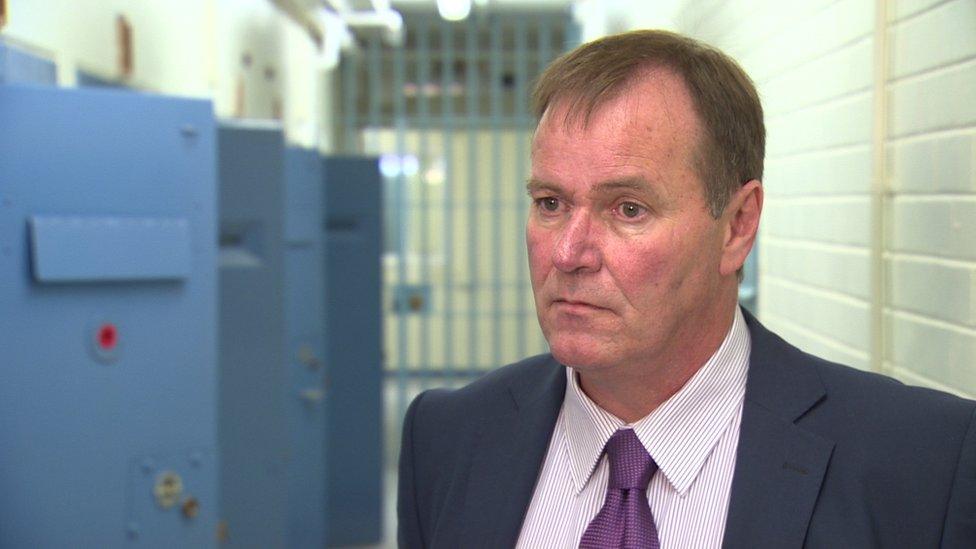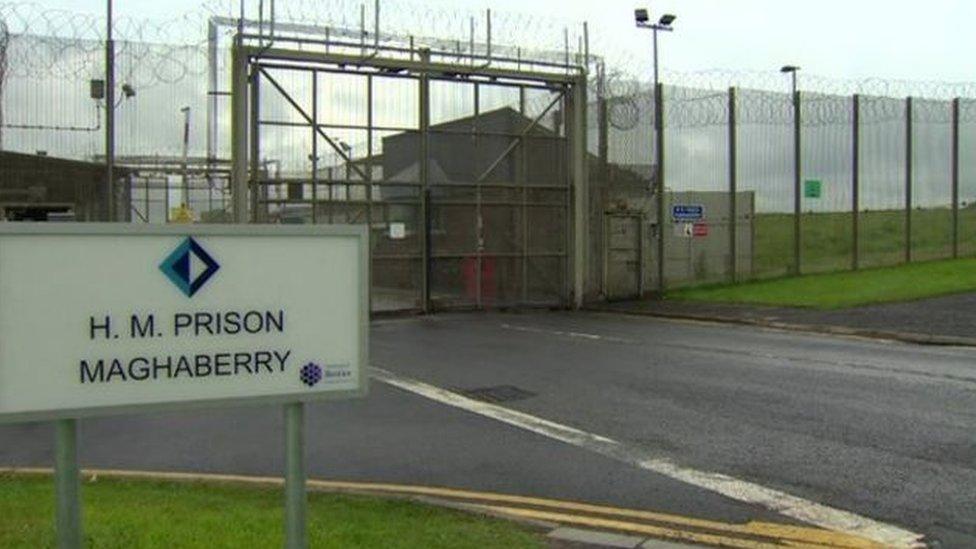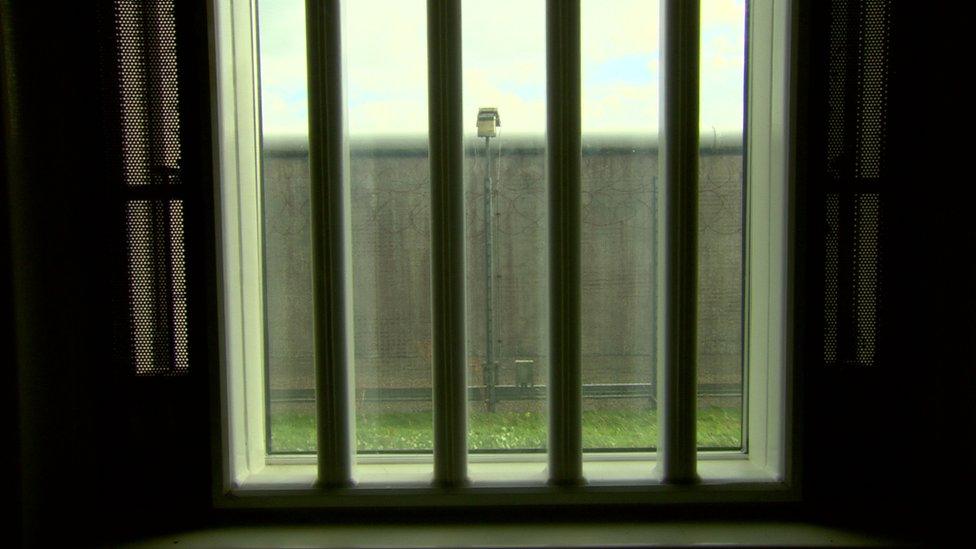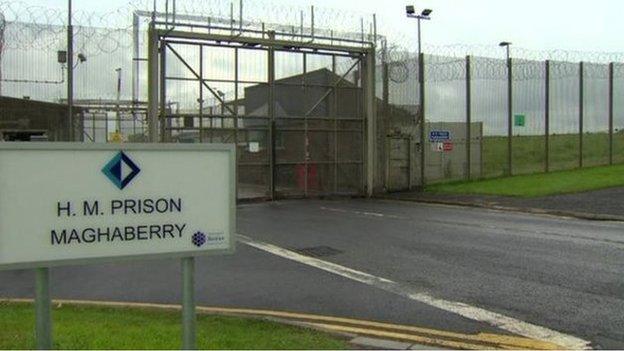Governor: NI jails need dedicated mental health facility
- Published

The governor of Maghaberry Prison, Steven Davis, said prisons are not suitable for people with serious mental health difficulties
The man in charge of Northern Ireland's high security jail has said prisons are not suitable for dealing with people with serious mental health problems.
There are currently just over 900 men being held in Maghaberry prison near Lisburn.
Over a quarter are said to have severe mental health issues.
On any one day, around 20 are in special observation cells because they are considered to be at risk of self harming or taking their own lives.
Stephen Davis, who took over as governor in August, said his job would be much easier if Northern Ireland had a dedicated medical facility to treat inmates at risk.
He told the BBC the action's of prison officers and nurses in the jail had saved the lives of prisoners with mental health problems in recent months.

900 male prisoners are currently being held at Maghaberry Prison near Lisburn
The governor said dealing with such inmates placed enormous pressure on staff.
"The prison service and prisons are designed to deal with prisoners," he said.
"My staff, I would suggest, are experts at dealing with criminals, we are not mental health nurses."
'Nowhere else to go'
When asked if those in need of treatment for serious mental health problems should be sent to prison, Stephen Davis said the problem at this stage was that there was nowhere else for them to go.
Asked where he thought they should go, he said "the best place for their treatment."
Mr Davis added: "The best way I can put this is when the population go to accident and emergency they expect to be treated with properly trained nurses, they would not expect to be treated by someone who has a first aid qualification."

A 'listener scheme' in Maghaberry and Magilligan prisons allows inmates to tell prison officers when they want to talk to a listener about their problems
"In terms of prison, I have staff experienced to deal with low level mental health and they are trained to deal with individuals of that ilk. When you have extreme cases then obviously a prison officer struggles."
The governor said he could point to a number of incidents in recent months where intervention by prison officers and nurses had saved the lives of inmates with mental health problems.
"I can honestly hand on heart say there are six prisoners here today, had it had not been for the action of my staff and the south eastern trust nurses, they would have died."
Mr Davis said wider society has to help address the issue of mental health problems and not expect the prison service to do so alone.
"Prisons are a part of society they are not apart from (society). These people come from society to me and they go back to society," he said.
"The response to this has to be a societal one. It can't be a prison service one."
'Listener scheme'
Stephen Davis praised a Listener scheme run by the Samaritans, which trains prisoners to help fellow inmates suffering from depression and experiencing suicidal thoughts.
During the past year 20 listeners in Maghaberry and Magilligan prison near Limavady had more than 1,600 contacts from prisoners seeking help.
"I think it provides excellent peer support, I think it's valued by the prisoners and it's valued by the staff," he said.
"It provides immediate support, immediate at the time a prisoner goes into crisis, and provides a useful sounding board for prisoners to talk, and talk through issues in a completely non-judgemental and open way."
- Published5 October 2016

- Published13 October 2016

- Published5 November 2015
